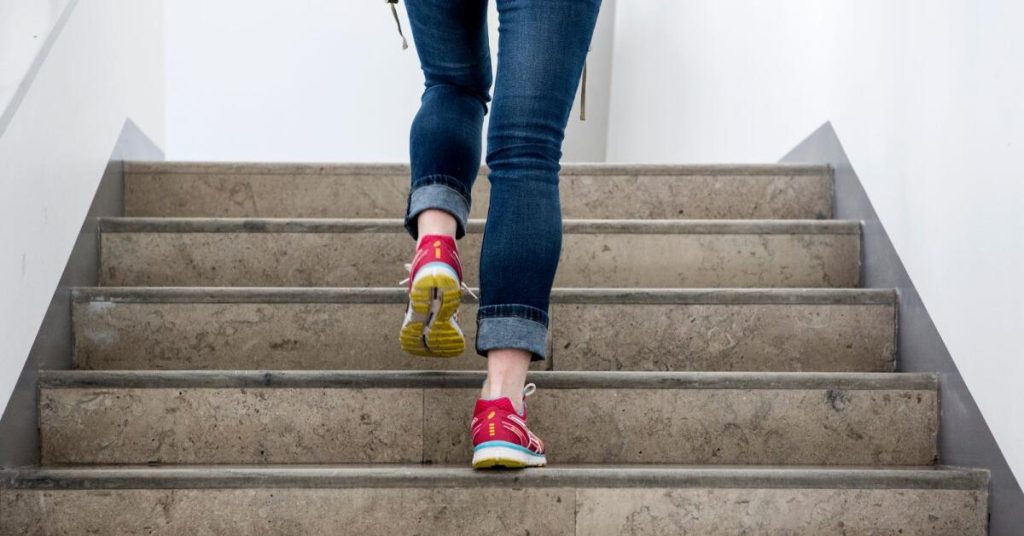He writes that walking up the stairs is an easy step towards a healthier life
Photo: Kristen Olson/TT
Eight out of ten Swedes would like to move more in everyday life. However, we spend upwards of 70 percent of our waking hours sitting quietly. Through small changes with more movement in everyday life, this fall you can create new habits that will give you a richer, longer life, writes Professor Mae Lees Helenius of the Government’s Committee to Promote Physical Activity.
Sweden belongs to the European countries where the population exercises the most. At the same time, we Swedes spend an average of nine to ten hours of our waking time lying down or sitting, which puts us on top of the world when it comes to sitting still.
This is a development we must break. Our sedentary lifestyles have become one of the biggest threats to public health. The positive thing is that we can all contribute to solving the problem, both in terms of our own health and the larger societal problem. And the gains are immediate – especially for those who move the least.
Research shows that people who are physically active sleep better, feel better, and work better. Movement improves memory and learning and reduces anxiety. A recent study showed that those who met the World Health Organization’s recommendations for physical activity – the equivalent of 2.5 hours of brisk walking per week – had a 25 percent lower risk of depression than those who were inactive. At the same time, movement reduces the risk of common popular diseases such as cardiovascular disease, type 2 diabetes, common forms of cancer and dementia.
Eight out of ten Swedes like to move around in daily life more than they do today, explains a Sifo survey we did at the Committee to Promote Increased Physical Activity. To inspire more people to move more in everyday life, we’ve compiled simple facts and tips in the book Every Movement Matters – The Importance of Daily Movement and How We Can Break the Sedentary Lifestyle.
Here are five tips on how to move more in everyday life:
1. Do the movements you know and love for a few minutes every half hour, for example the ten-leg curls.
2. Use the stairs instead of the elevator or escalator.
3. Stand or walk when talking on the phone and start walking meetings.
4. Go out every day. Aim for at least 7,500 steps or preferably 10,000 steps per day.
5. Walk or bike when shopping or running other errands.
Through small changes in daily life, we can live longer and feel better – both physically and mentally – while society can save a lot of money. The research shows that every move counts, that those who move the least will earn the most, and that the gains are immediate. Use fall to lay the foundation for a richer, healthier life!
Professor My Lees Helenius, Committee to Promote Increased Physical Activity
This is an opinion article and the content is the opinions of the author or writers.

“Extreme tv maven. Beer fanatic. Friendly bacon fan. Communicator. Wannabe travel expert.”







More Stories
Why Rare Earth Metals for Electric Cars Are Crucial for Modern Mobility
“We want to promote critical rules approach”
“A lot happened during the trip,” Jönköping County Council